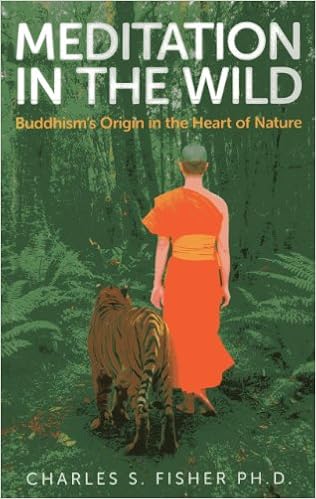 |
Candid portrait of my practice:
written and recorded teachings; twine and rings for making fudos; mat where my bowl rests; laptop, sole link with the outside. |
I'm often questioned about my monastic practice, since I don't wear vestments or live in a monastery. It's a fair question. Here's a fair answer.
Christ and the Buddha defined monastics in astoundingly similar terms: They answer a unique call and walk a personal path. They reject personal ambition, and family and social obligation. Though encouraged to seek each other out for wisdom and solace, they are self-ordained. Neither Jesus nor Gautama recognised any other clerical model.
Such renunciates are called
monks, from the morpheme
mono-, meaning "single."
Unfortunately, as individuals who follow a personal call and have no use for human authority or the credentials it sells, we quickly fell afoul of power. As a result, The Man redefined the word as "one who lives in a monastery," that is, a "place where people are alone together." (Hey, don't look at me.) Monasteries are owned and operated by The Establishment, which claims sole right to train and ordain residents. Let's be clear: there is no scriptural basis for this presumption, or this practice.
Today, ordained monastics have all but wiped alternatives from memory, so that an old-school monk like me risks being labelled a fraud for claiming the title. But I do anyway.
Later we stick-and-sandal types took the term
hermit, by way of clearing up the confusion, but this too has become problematic. For starters, it calls up images of a crotchety old man who hates people and lives in the woods and never bathes. And I'm not that crotchety.
By whatever name, monastics who live by a rule of their own authorship have been around since the first human suspected there was more to life than the opposable thumb. To my certain knowledge, only the Roman Catholic church recognises us officially today. And the Vatican has been under pressure to ordain us ever since, but so far, successive popes have defended the eremitic vocation.
I confess I'm a bit envious of my
Catholic brothers and sisters. Thanks to papal protection, there is now a sanctioned hermit movement within the Church that helps to dampen, if not eradicate, the sniping. Most Catholics I meet have still never heard of us, but the ordained monastics have, and that's huge.
Zen, sadly, is another matter. Although one of the most hermit-bound traditions on earth, the current Zen establishment is largely hostile to free-range monks. It's koanic, really: the Buddha was a hermit;
Bodhidharma was a hermit;
Huineng, father of all extant Zen lineages, was arguably a hermit;
Ryōkan, one of our most beloved ancestors, was a hermit;
Ikkyū, whose teachings are an essential antidote to Buddhist hypocrisy, was a hermit. But the Asian cultures in which Zen is rooted have a demonstrable contempt for individual initiative, and that has led us into a cul-de-sac of guru-worship. Today, Zen hermits are often accused of imposture and egotism for living the Buddha's own given precepts. The resentment is mutual and conspicuous, particularly in the West, where autocracy is dimly viewed and self-sufficiency a virtue.
For the record, I consider ordained monasticism legitimate, and even necessary. Alright, it's not scriptural. So what? Stuff doesn't have to come from the sutras to be valid. If it weren't for monasteries, what would I study? Most Zen teachings are generated, and all are curated, by ordained monks. The typical hermit has been inside before. I have done, and am likely to do again. The monastery is an important touchstone, and a weighty counterbalance to the hippy-dippy narcissism of hermitry. I shudder to think what we would become without it. Finally, it's an effective, irreplaceable practice for many who are drawn to that path, as synonymous to their lives as mine is to mine.
In sum, if I had a million dollars, I'd give it to a monastery. What the hell is a hermit gonna do with money, anyway?
But when the ordained sangha dismiss us homeless brothers as heretics or wannabes, or insist that our
sacred birthright path leads nowhere but astray, then I just have to say it, loud and clear:
"Yo, Batman! You got a problem, you talk it over with the Buddha. I got more important lives to live."
 If you'd like to explore a rich source of provocative, not overly-technical Zen reads, check out Sotozen.com. Among its many offerings is an attractive compendium of Zen stories, presented with penetrating opening commentary. A good start might be this favourite example, starring the decidedly un-Soto Ikkyu.
If you'd like to explore a rich source of provocative, not overly-technical Zen reads, check out Sotozen.com. Among its many offerings is an attractive compendium of Zen stories, presented with penetrating opening commentary. A good start might be this favourite example, starring the decidedly un-Soto Ikkyu.
